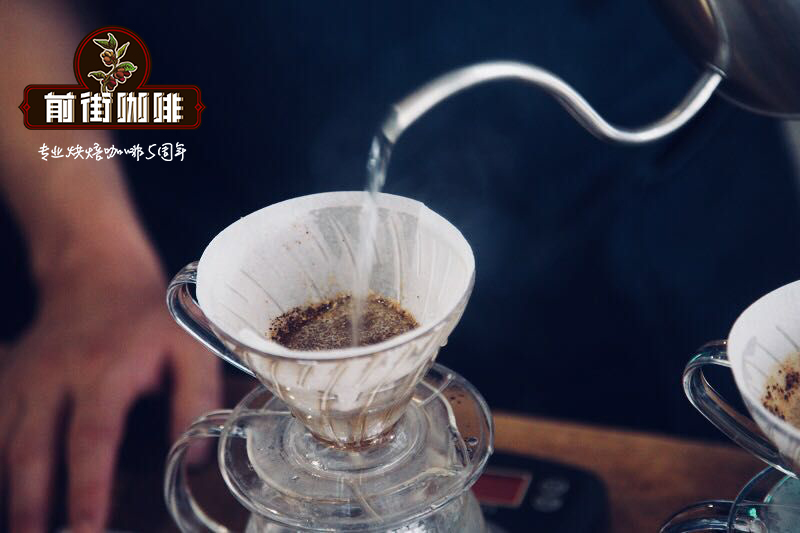Brazilian coffee varieties What is Brazilian coffee production ranking Brazilian coffee picking time

Professional coffee knowledge exchange more coffee bean information please follow the coffee workshop (Wechat official account cafe_style)
Brazilian coffee production is expected to be close to an all-time high in 2020 as Brazil's coffee production increases for the first time since 2012, the Brazilian government agency Conab said in a research report released on Thursday. Brazil is the world's largest exporter of coffee.
In a preliminary estimate of the new crop, Conab said Brazilian farmers would produce 57.15 million bags of 60 kg bags to 62 million bags, with a median of 59.6 million bags.
This will be slightly below the historical production peak of 61.65 million bags set in 2018. 2019 is the off-season of the biennial production cycle, with an output of 49.3 million bags.
Coffee production in Brazil has been high and low for many years because of the natural circulation of arabica coffee trees, which produce most of Brazil's coffee fields. Robusta's production is usually stable.
According to Conab, production in Brazil has declined for several years, and by 2020, it has increased by 4 per cent over 2019 to 1.88 million hectares. This could have guaranteed a new production record in 2020, but the agency said drier, hotter than normal weather reduced potential production after the main flowering period late last year.
With coffee prices hovering near their lowest level in a decade, the increase in production in coffee-producing areas may surprise some in the industry. House prices rebounded in late 2019 and January, but fell again in the past few days.
Conab said that the increase in area was the result of the increase a few years ago, and production has only now begun (it takes about three years for coffee trees to start production). The number of development areas currently used to produce coffee is declining significantly, for example, by 14 per cent compared with 2019, the report said.
Taking into account the "year" of the two-year production cycle, Brazilian Arabica coffee production in 2020 is expected to increase by 26 per cent to 34.1 per cent from 2019. Brazilian farmers are expected to harvest 43.2 million to 45.98 million bags of 60-kilogram Arabica coffee this year, Conab said.
Starting in 2019, Robusta will produce between 13.95 million and 16.04 million bags, or-7.1 per cent to 6.8 per cent. Arabica coffee beans account for most of the producers of high-quality brands, while Robusta is widely used to produce instant coffee.
END
Important Notice :
前街咖啡 FrontStreet Coffee has moved to new addredd:
FrontStreet Coffee Address: 315,Donghua East Road,GuangZhou
Tel:020 38364473
- Prev

Ecuadorian coffee producing area Ecuadorian coffee beans are good? is Ecuadorian hand coffee good?
For more information on coffee beans, please follow the Coffee Workshop (official Wechat account cafe_style) everything you need to know about the Ecuadorian coffee industry Ecuadorians grow coffee not only in the Andes, but also on the coast, in the low-lying Amazon basin, and even on small plots of land in the Galapagos Islands. With coffee roasters all over the United States
- Next

Why is Ethiopian coffee made by hand? why is it good to drink Ethiopian coffee? is the growing environment good? the characteristics of Ethiopian coffee
For more information on coffee beans, please follow the coffee workshop (Wechat official account cafe_style) Ethiopia's perfect coffee growing environment there is great potential for coffee production in Ethiopia due to high altitude, ample rainfall, suitable temperature, suitable planting materials and fertile soil. In addition, this country has special value to the world because
Related
- Beginners will see the "Coffee pull flower" guide!
- What is the difference between ice blog purified milk and ordinary milk coffee?
- Why is the Philippines the largest producer of crops in Liberia?
- For coffee extraction, should the fine powder be retained?
- How does extracted espresso fill pressed powder? How much strength does it take to press the powder?
- How to make jasmine cold extract coffee? Is the jasmine + latte good?
- Will this little toy really make the coffee taste better? How does Lily Drip affect coffee extraction?
- Will the action of slapping the filter cup also affect coffee extraction?
- What's the difference between powder-to-water ratio and powder-to-liquid ratio?
- What is the Ethiopian local species? What does it have to do with Heirloom native species?

